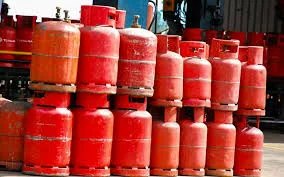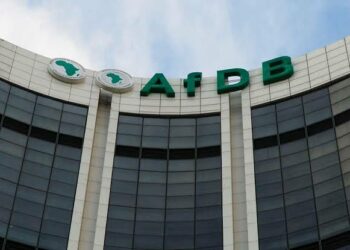Controversy has continued to trail pricing of Liquified Petroleum Gas, LPG, known as Cooking Gas, just as marketers warns that prices may further deepen
Cooking gas currently costs between N1,000 and N1,200 per kilogramme across the country and there are fears that the price may rise further due to scarcity, which marketers attribute to supply interruption.
The Nigeria Liquefied Natural Gas (NLNG), had on 13th January 2022, states that 100 per cent of Nigeria’s Liquefied Petroleum Gas (LPG) produced will be supplied to the Nigerian markets for domestic consumption.
The NLNG explained that the reason for doing this is to increase the availability of LPG in Nigeria, diversify the uses of LPG, and also support the Federal Government’s decade of gas initiative.
The President of the Nigerian Association of Liquified Petroleum Gas Marketers, NALGAM, Oladapo Olatunbosun, has urged the Federal Government to check the price increase proactively.
He blamed the scarcity of gas in some sections of Lagos on supply disruption, claiming that the tanker scheduled to offload in the state had not done so.
He stated, “Information at our disposal reveals that Nigerians are facing hard times getting the product.”
He cautioned that if the Federal Government does not intervene, the price of 12.5kg of cooking gas might soon reach N18,000.
He claims that the volume marketers used to purchase for N8 million is now being sold for N14.5 million.
Olatunbosun said, “Go to the North and the Far East and see what people are facing. In some places, they are buying at N1,300 per kg because the cost of buying at the terminal has risen very high. As of today, terminals are selling for N14.5 million, what used to be about N8 million and N8.5 million.
“The supply has also been somehow epileptic. The vessel from NLNG went to Port Harcourt twice, which is why there is a delay in Lagos. The vessel came back to Lagos two days ago. They just offloaded it, and the quantity it brought was not that substantial. We are expecting it back in about a week.
“So, we are using this opportunity to call on the Federal Government of Nigeria, particularly the new Minister of Gas, to pay attention to LPG. LPG is a product that can serve all Nigerians, both the young and the old; everybody who needs gas.
“And for the fact that the fuel subsidy removal is biting hard on people, electricity is not regularly supplied, people do not have any other means to cook than gas; it is now becoming what they cannot afford and it therefore means our forest will suffer for it.
“So, we need to look into the supply, and what is the price that is coming to the market? What prices are they selling at? What is really behind the hiked price and what role can the government play? Is it the role of intermediaries? Is it the role of the middlemen? What is actually causing the high price?”
According to him, while some people blame the hike on the forex crisis, there is an element of profiteering in it.
He added, “This is where the government has to beam its searchlight and caution all the players and also have a regular meeting with the terminal operators and off-takers on how we can protect Nigerians.
“The poor Nigerians are suffering; gas is getting out of the reach of Nigerians, and it is not making life easy for anybody.
“We are not happy about that. As businessmen, we are suffering the cost of buying, and the cost of doing business has also gone up. And the product is not all that available.
“So, while the government is tackling regular supply, it also needs to work on the major suppliers, the off-takers, so that a little of profiteering should be downplayed now to protect the poor Nigerians so that gas can be affordable.
NATIONAL ECONOMY, reports that Nigeria’s plans to expand the domestic LPG market to 5 million tons a t/yr by 2030 from 750,000 t/yr in 2017 have coincided with severely challenging conditions, brought about by the COVID-19 pandemic and more recently the Ukraine war.
Demand grew in 2021 but fell short of target and hopes of getting it back on track to reach 2 million t/yr last year were thrown off course by rising energy prices following Russia’s invasion of Ukraine.
Nigeria’s head of the LPG expansion programme, Dayo Adeshina, in a chat with Argus Media while discussing the market’s development in 2022, said, “We unfortunately didn’t meet our demand target of 2mn t last year. Demand still rose to an all-time high, but we had a lot of issues in 2022 that distorted the market. The Russia-Ukraine situation resulted in prices rising exponentially. Any increase in price directly affects Nigeria’s market expansion.
Adeshina, said they affordability is vital, as one of the expansion programme’s “four As” acceptability, affordability, accessibility and availability.
To a large extent, he said Government has tackled accessibility, but are yet to tackle to the same degree affordability and availability.
In terms of acceptability, Nigeria made significant progress, which can be seen from the market’s growth since the programme started in 2017, from 750,000 t/yr to more than 1.3mn t/yr in 2021.
Consumption rose to about 1.42mn t last year, according to government data, which is disappointing. Some issues were beyond Government control, such as the Ukraine war. Outside of that, a couple of regulatory issues, including on VAT, acted as a disincentive to importers. But on the delivery of new [LPG import] terminals, Adeshina claimed Government did quite well.
VAT Challenges To Importers
In 2007, the Government removed the Value Added Tax, VAT on LPG imports after a key refinery stopped operating.
This caused a huge market imbalance as imports became considerably cheaper than domestically produced LPG.
One of the first things the Government did was to remove VAT on domestic supplies, but it did not reimpose VAT on imports.
Last year, a regulator identified the continuing imbalance and got approval to reinstate VAT [of 7.5pc] on LPG imports, taking effect in the second quarter of 2022. It created huge debit notes for importers and the decision was also retracted late last year. About 65pc of Nigeria’s LPG was imported in 2021, and that trend continued in 2022 because of issues at domestic plants. Supply thinned as a result.
LPG prices consistently rose throughout 2022, as the average for 20t cargoes from terminals rose to about 612,500 naira/t [$1,331/t].
Prior to that, it was N450,000-500,000/t. And the 7.5pc VAT on imports had a sudden impact on prices.
Stabilizing LPG Prices
Adeshina, in the interview said Government can help to crash LPG prices with continued interventions in areas where policies have created sudden distortions, and to act as an enabler so that this extra volume is coming from additional players, because more competition drives prices down.
He said If we have 10 more producers, then we can see exponential growth in terms of supply and as long as there’s a market, and that market is 210mn people, even if it is just the 30mn homes we are targeting to start with, it’s clear there is a significant market.
NLNG Supply Distortions
Despite promises to dedicate 100 per cent of its Butane and Propane production to local market, the Nigeria Liquified Natural Gas, NLNG, is facing some challenges at the moment.
They are having issues with gas processing because they couldn’t get raw gas because of pipeline vandalisation.
Though Government is trying to develop markets for propane, and had hoped the autogas market would take off and absorb a significant amount of their propane, but this did not happen.
Government is also looking at power generation for propane, and it is expected to kick off a scheme to substitute diesel with propane but it didn’t even emerge last year.
As the prices continued to rise unabated the Nigeria LNG Limited (NLNG), has denied media reports insinuating that a price hike by the Company is responsible for the surge in the price of domestic Liquefied Petroleum Gas (LPG), commonly known as cooking gas, in the domestic market and predicting that scarcity looms as a consequence.
The NLNG dismisses these media reports as speculative and indicative of a fundamental misunderstanding of Nigeria’s intricate market dynamics.
The NLNG said it has been making defining contributions to the domestic LPG market, spurring the steady growth of the nation’s DLPG market volume from less than 50,000 metric tonnes of imported LPG in 2007 to over 1.3 million metric tons of both domestic and imported LPG today.
According to the statement, the NLNG currently delivers over 450,000 metric tonnes per annum of Butane, the main product in cooking gas and has embarked on domestic propane supply to further grow the market.
The Company said it has committed its entire Butane and Propane production to the domestic market from 2023 and despite feed gas challenges, continues to supply LPG to the domestic market, accounting for approximately 40 per cent of the total market volume.
Since the beginning of the year, NLNG has delivered over 380,000 metric tonnes of LPG using the Company’s dedicated LPG vessel.
The NLNG said it has remained committed to delivering domestic LPG to locations as close to the market as possible by diversifying delivery points starting with Lagos in 2023, fostering competition among terminal owners and ultimately reducing consumer supply chain costs. Efforts are ongoing to reach terminals in Warri and Calabar as soon as the challenges limiting safe delivery of volumes to these other locations are cleared.
“The domestic LPG market, like any other, is subject to dynamic market forces and various external factors. Such factors as changes in exchange rates, and escalating price benchmarks mirroring crude oil prices, and the Panama Canal drought-induced vessel scarcity impacting transport costs especially for imported LPG, have had significant effect on energy prices in the recent times and could undoubtedly be some of the reasons for recent price hikes witnessed in the domestic market.
“NLNG maintains an unwavering commitment to ensuring the reliable supply of its LPG production to the domestic market at prices that are reflective of the market. The Company is collaborating with relevant industry stakeholders to achieve this objective and will remain focused on achieving its mission through this avenue among others.” it added.
Meanwhile, report says Nigeria’s LNG export facility at Bonny remains under force majeure more than a year after it was first declared with output from the six-train plant having fallen below 50 per cent of its nameplate capacity.
The Nigeria LNG (NLNG) declared force majeure on October 17 last year after flooding impacted the ability of gas suppliers to feed gas to the facility and remains in place due to continued disruption to gas feedstock supply.
“Supply of gas to the Bonny plant still faces major constraint and is keeping production at the plant well below capacity,” an NLNG spokesperson said. “The force majeure remains in place.”
The six-train LNG export facility has a capacity of 22.5 million mt/year (31 Bcm/year) but is being expanded to 30 million mt/year with the addition of a seventh train.
Last year, Nigeria’s LNG exports totaled some 14.7 million mt, according to data from S&P Global Commodity Insights, and so far this year have reached 12.5 million mt.
Coping With 2022 October Force Majeure
The Nigeria’s LNG export facility at Bonny remains under force majeure more than a year after it was first declared with output from the six-train plant having fallen below 50 per cent of its nameplate capacity.
Nigeria LNG (NLNG) declared force majeure on October 17 last year after flooding impacted the ability of gas suppliers to feed gas to the facility and remains in place due to continued disruption to gas feedstock supply.
“Supply of gas to the Bonny plant still faces major constraint and is keeping production at the plant well below capacity,” an NLNG spokesperson said. “The force majeure remains in place.”
The six-train LNG export facility has a capacity of 22.5 million mt/year (31 Bcm/year) but is being expanded to 30 million mt/year with the addition of a seventh train.
Last year, Nigeria’s LNG exports totaled some 14.7 million mt, according to data from S&P Global Commodity Insights, and so far this year have reached 12.5 million mt.
Spain has taken the most Nigerian LNG in 2023 to date, with imports of 3.3 million mt followed by Portugal (1.4 million mt) and China (0.9 million mt).
A company statement quoted NLNG managing director Philip Mshelbila as saying that gas supplies to the Bonny plant continued to be disrupted due to recurrent sabotage attacks on pipelines and low production from aging wells.
“The company is facing difficulties in getting adequate gas supply and the result is under-production at below 50% of total installed capacity,” Mshelbila said.
He said NLNG was looking to procure gas feedstock from outside of its traditional suppliers to enhance the performance of the existing six trains at the site.
Disruption to gas supply had already reduced production at the plant to 68% of its nameplate capacity last year.
Meanwhile, spot LNG prices remain high, with the Platts benchmark JKM price for delivery into northeast Asia last assessed Nov. 7 at $15.56/MMBtu, S&P Global Commodity Insights data showed.
‘Decade Of Gas’
Nigeria in 2021 launched its roadmap on gas development known as “The Decade of Gas” and promised new efforts to advance its gas sector to help underpin economic development.
The government is focusing not only on fully developing the country’s estimated 203 Tcf of existing proved gas deposits, but also on unlocking up to 600 Tcf in unproven gas resources.
As well as expanding the NLNG plant to 30 million mt/year with the construction of a seventh train, work is underway to deploy floating LNG infrastructure in the West African country.
The Nigerian National Petroleum Company Limited, NNPCL, agreed last year a new heads of term with LNG specialist Golar LNG for the potential deployment of a floating LNG export facility in Nigeria, having also agreed to join UTM Offshore’s FLNG project in late July
FG Strategic Intervention Initiatives
Now in a deliberate commitment towards making cooking gas more affordable the federal government has announced the exemption of Liquefied Petroleum Gas (LPG) imports from Value Added Tax (VAT) and customs duty.
This decision reportedly deployed through a letter from the Ministry of Finance, is expected to significantly reduce the cost of cooking gas for households and businesses across the country.
According to reports the federal government decided to waive customs duty and VAT on importing the commodity and its accessories to crash the price of Liquified Natural Gas (LPG) nationwide.
The report said the Ministry of Finance conveyed the decision in a letter dated November 28, 2023, and addressed to several officials, including the Special Adviser to the President on Energy, the Comptroller General of Customs, and the Chairman of the Federal Inland Revenue Service (FIRS). The Minister of Finance, Wale Edun, signed the letter.
The letter partly reads: “In line with His Excellency, President Bola Tinubu’s commitment to improving the investment climate in Nigeria, increasing the supply of LPG to meet local demand, reducing market prices, and promoting clean cooking practices, I hereby affirm Presidential directive dated July 29, 2022, with reference number PRES/88/MPR/99,” the letter reads.
The letter also directed Nigeria Customs to comply with the presidential directive of July 29, 2023, and withdraw all debit notes issued to oil marketers who have imported the product, using codes 2711.1.200.00 and 2722.13.00.00 from August 26, 2019, to the present.
Other items exempted from VAT and duty payment are LPG cylinders, cascades, gas leak detectors, steel pipes, valves and fittings, dispensers, gas generators, and trucks.
Earlier the federal government initiated a process to resolve challenges bordering on the supply and pricing of Liquefied Petroleum Gas in the country’s domestic market better known as cooking gas.
A statement by Louis Ibah, spokesman for the Minister of State Petroleum Resources (Gas), Ekperikpe Ekpo, said the minister waded into the issue following a rise in the price of LPG per kg from about N700 to above N1,100 in some parts of the country.
He said the meeting, at the instance of the minister, which was held at the NNPC Towers Abuja had in attendance top officials of Chevron Nigeria Limited led by Sansay Narasimi; Nigerian Midstream Downstream Petroleum Regulatory Authority led by its Chief Executive Officer, Farouk Ahmed and the Nigerian National Petroleum Corporation Limited.
The key challenges identified as responsible for LPG price increase include FX sourcing for imports and insufficient supply to the domestic marketkpo expressed the concerns of President Bola Tinubu over the astronomical increase in the price of cooking gas and the attendant hardship on the majority of citizens.
The minister who noted that Nigeria is abundantly endowed with gas reserves, said the situation where some of the multinational firms were more concerned with gas exports without dedicating huge volumes to the domestic market was unacceptable and should be discouraged.
He said, “With the exponential increase in the price of LPG, there is the need for the Federal Government to intervene and I am representing this at this moment.
“We acknowledge that some producers are exporting while we are faced with the challenges of importation.
“Public interest is the overriding interest all over the world for the government, and the demand for LPG will increase as we approach December…you have a public service obligation to collaborate with the government to ensure the security of gas supply, we need to therefore bend backwards and find solutions, to ensure that we have sufficient supply and stability in-country and that Nigerians have gas.”
The minister thereafter constituted a committee with a mandate to come up with recommendations on how to boost supplies and crash LPG prices within a week.





